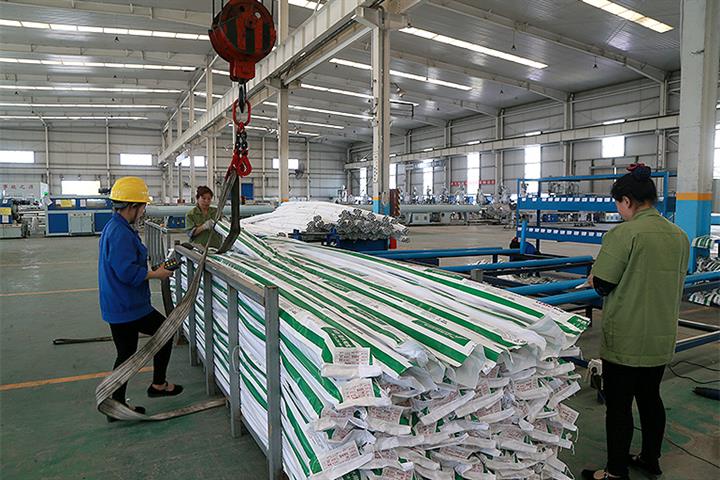 China's Two Sessions Underline Private Firms' Role in GDP Rebound
China's Two Sessions Underline Private Firms' Role in GDP Rebound(Yicai Global) March 6 -- During China's top legislative meetings of this year, political influencers are emphasizing giving equal rights to private companies to succeed amid economic recovery.
Boosting private companies’ confidence has become a hot topic during this year’s Two Sessions as the country overcomes the impacts of the Covid-19 pandemic on its gross domestic product growth, Yicai Global learned. Meeting participants have suggested that state-owned enterprises and private companies should be teammates, and they ought to be treated equally from institutional and legal perspectives.
Several delegates to the National People’s Congress, China’s top legislative body, as well as multiple members of the National Committee of the Chinese People’s Political Consultative Conference, the country’s top political advisory body, have made proposals to safeguard private firms' rights and interests while breaking down access barriers and supporting the growth of small, even micro-sized companies.
Private firms still face development challenges, including fundraising, Qi Xiangdong, chairman of cybersecurity solution provider QAX, said to Yicai Global. These companies are more vulnerable in fighting against risks and have a weaker positioning in the financial market, the delegate to the NPC added.
Especially startups, which invest a lot in innovation, pose high risks and have long cycles but they also face stricter regulation on risk control, which will easily result in broken capital flows, Qi said.
Another challenge is limited access. In terms of technological innovation, it is still hard for private firms to get involved and the only thing they can do is "watch," Qi said, adding that this is why many good policies cannot be effectively implemented.
Xu Guanju, chairperson of chemical producer Transfar Group, said that the government should pass laws to spur the growth of the private-sector economy. These policies should protect private companies’ property rights. Moreover, laws should ensure equal use of resources.
"Such a move will not only facilitate protection targeting private property but also helps to eliminate local protectionism so as to build a uniform large market nationwide," Xu said.
Investing was also mentioned. China should encourage private capital to enter more sectors, except for certain restricted areas, while comprehensively implementing its system of negative lists, according to Wu Zhongkai, a deputy to the NPC. Non-SEOs should be prompted to get involved in the construction of major projects and undertakings with weak links, he added.
But also, major infrastructure projects need to have better market-oriented investing and financial mechanisms to support the equal participation of private companies, Wu added.
Editors: Liao Shumin, Emmi Laine, Xiao Yi